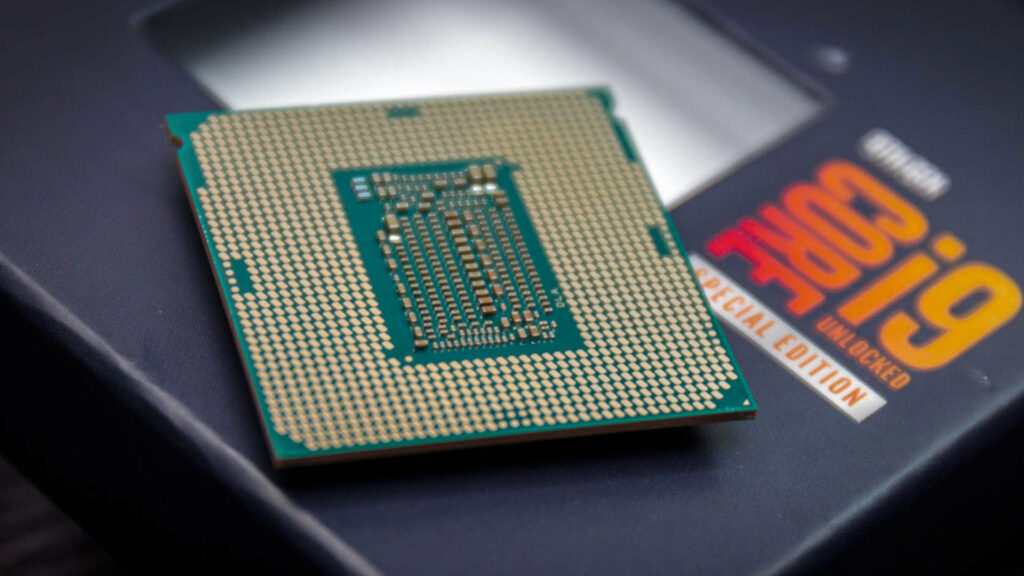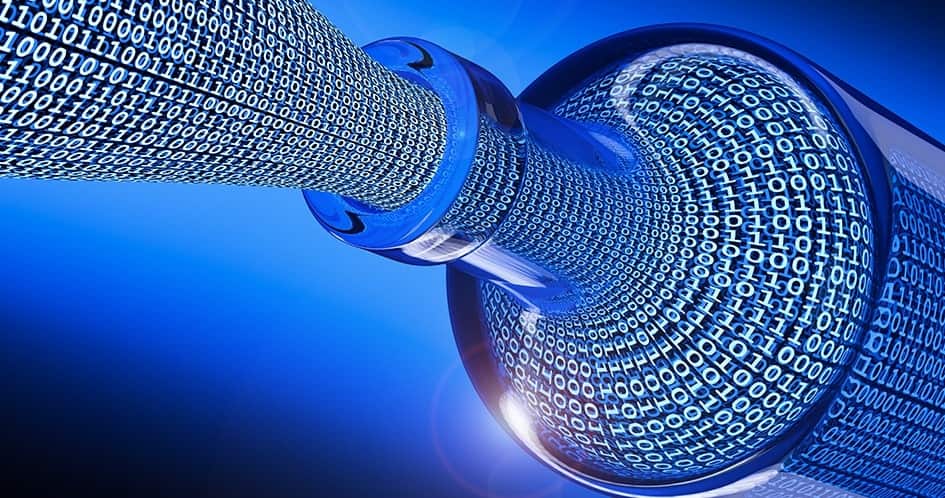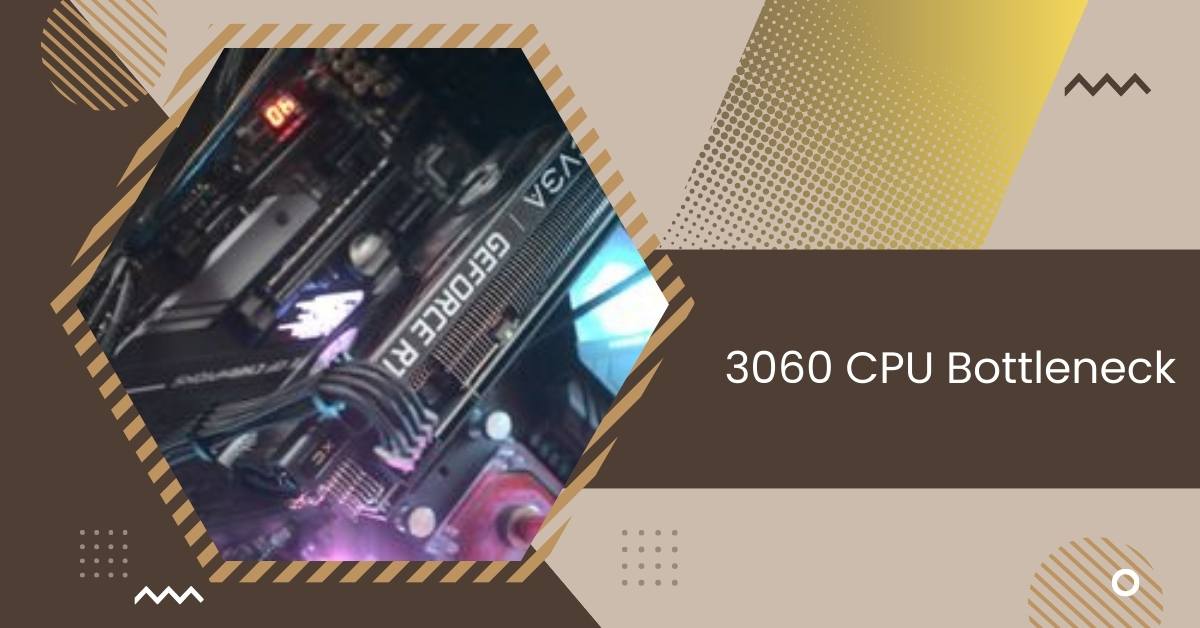If you’re into PC gaming, you’ve probably encountered the term “CPU bottlenecking” at some point.
If you pair a Ryzen 5 5700X with a 3060 GPU, CPU bottlenecking can occur, especially if there are noticeable performance drawbacks. Use a bottleneck calculator to assess potential issues. Consider Intel alternatives or upgrading to a Ryzen 5 5600X for smoother performance.
In this article, we’ll delve into the specifics of CPU bottlenecking, mainly focusing on the impact of a 3060 CPU bottleneck.
Understanding The 3060 CPU Bottleneck
To grasp what the 3060 CPU bottleneck is all about, let’s break it down. When we talk about a bottleneck, we’re referring to a situation where one part of a system slows down the rest.
In this case, it’s about how the central brain of your computer, the CPU, might be holding back the performance of your graphics card, the 3060.
Imagine a traffic jam on the highway—the slowest car dictates how fast everyone else can go. Similarly, if your CPU can’t keep up, it holds back the potential of your 3060 GPU.
Factors Contributing To CPU Bottlenecking

- CPU Speed: The speed of your CPU, measured in GHz, determines how quickly it can process data. If it’s too slow, it cannot be fast enough to withstand other components like the GPU.
- Number of CPU Cores: Modern CPUs have multiple cores, allowing them to handle various tasks simultaneously. However, if your CPU has too few cores, it might need help to handle tasks efficiently, leading to bottlenecking.
- Cache Size: CPU cache stores frequently accessed data for quick access. A larger cache size can improve performance, but the CPU may spend more time fetching data if it needs to be bigger, leading to bottlenecking.
- Memory Bandwidth: The speed at which your CPU can access data from memory affects overall performance. If memory bandwidth is insufficient, the CPU may wait longer for data, causing bottlenecking.
- Software Optimization: Poorly optimized software can place excessive demands on the CPU, leading to bottlenecking. This can occur in games, applications, or even the operating system.
- Background Processes: Other programs running in the background can consume CPU resources, leaving less available for gaming or other demanding tasks, resulting in bottlenecking.
- Storage Speed: Slow storage devices, such as HDDs, can bottleneck the CPU by causing delays in data retrieval. Upgrading to faster storage solutions like SSDs can alleviate this bottleneck.
- Peripheral Devices: Connected peripherals like USB devices or network adapters can consume CPU resources, especially if they need to be better optimized or functional, leading to bottlenecking.
- Temperature and Cooling: High CPU temperatures due to inadequate cooling can trigger thermal throttling, where the CPU reduces its performance to prevent overheating, resulting in bottlenecking.
- Overclocking Stability: Overclocking the CPU beyond its stable limits can lead to instability and crashes, causing bottlenecking during demanding tasks. Ensuring a stable overclock is crucial to avoid this issue.
How To Identify CPU Bottlenecking
Identifying CPU bottlenecking is like spotting a slowpoke in a race. It would help to monitor your CPU and GPU during gameplay.
Tools like MSI Afterburner or Task Manager act as your watchful eyes, showing how much your CPU and GPU work.
Seeing your CPU working at maximum capacity while your GPU is idling is a sign of bottlenecking. It’s like seeing one runner sprinting while the other struggles to keep up—it indicates that something’s amiss with your CPU’s performance.
See Also: Pre Memory CPU Initialization Is Started – Steps By Steps!
Impact Of CPU Bottlenecking On Gaming Performance

When CPU bottlenecking crashes the gaming party, it’s like rain on a parade—it dampens the fun. Your gaming experience might turn into a bumpy ride with choppy frame rates and laggy gameplay.
Imagine driving a sports car on a muddy road—it’s not as smooth and exhilarating as cruising on a clear highway. Similarly, CPU bottlenecking hampers your gaming performance, making it frustrating and less enjoyable.
It’s like having the brakes on while trying to race ahead—it slows you down and spoils the thrill of the game.
Solutions To Mitigate CPU Bottlenecking
- Upgrade Your CPU: Consider investing in a more powerful CPU to keep up with your GPU’s capabilities. It’s like swapping out a bicycle for a motorcycle—it gives you more speed and power.
- Overclocking: If you’re tech-savvy, overclocking your CPU can maximize extra performance. It’s like revving up your engine for a burst of speed—just be careful not to push it too far and risk overheating.
- Adjust In-Game Settings: Lowering graphics settings can reduce the strain on your CPU, allowing it to keep up with your GPU. It’s like choosing a lower gear to climb a steep hill—it makes the journey smoother.
- Upgrade RAM: Increasing your RAM capacity or opting for faster RAM speeds can improve overall system performance and alleviate CPU bottlenecking. It’s like adding more lanes to a congested highway—it helps traffic flow more smoothly.
- Optimize Background Processes: Close unnecessary background programs and tasks to free up CPU resources for gaming. It’s like clearing clutter from your workspace—it creates a more efficient environment.
- Update Drivers: Ensure your CPU and GPU drivers are up-to-date to optimize performance and compatibility. It’s like getting regular car-tune-ups—it keeps everything running smoothly.
- Improve Cooling: Proper cooling solutions, such as adding fans or upgrading to a better CPU cooler, can prevent overheating and maintain optimal performance. It’s like staying calm under pressure—it helps your CPU perform at its best.
- Upgrade Motherboard: A compatible motherboard with better chipset support can improve CPU performance and reduce bottlenecking. It’s like upgrading to a broader road—allowing smoother traffic flow.
- Opt for Multi-Core CPUs: CPUs with more cores and threads can handle multitasking and gaming simultaneously without bottlenecking. It’s like having more hands to juggle tasks—it makes everything easier to manage.
- Monitor and Adjust Settings: Monitor your system’s performance using monitoring tools and adjust settings to optimize CPU usage. It’s like changing the thermostat to maintain the perfect temperature—it ensures your CPU operates efficiently.
See Also: What Should My CPU Temp Be At Idle – Check Idle CPU Temps!
Considerations Before Upgrading CPU

Before you upgrade your CPU, there are some essential things to consider. First, make sure the new CPU will work with your motherboard.
It’s like fitting together puzzle pieces—they need to match up. Then, set a budget and stick to it so you don’t spend too much money.
Finally, choose a CPU that will still be good for a long time. Think of it as building a solid base for future changes.
For certain users, pairing AMD GPUs with Intel CPUs can offer an ideal setup, contrary to traditional beliefs surrounding CPU and GPU compatibility.
AMD graphics cards are fully compatible with Intel CPUs, allowing users to configure their systems. Combining an AMD GPU with an Intel CPU can yield a balanced and powerful computing experience, whether for gaming, content creation, or other tasks.
This compatibility extends to various software applications and operating systems, ensuring seamless integration and optimal performance for users who choose this hardware combination.
Tips For Optimizing Gaming Performance
- Keep Drivers Updated: Regularly update your graphics card drivers to ensure compatibility and performance improvements. It’s like giving your car a tune-up—it keeps everything running smoothly.
- Monitor Hardware Temperatures: Use software tools to monitor CPU and GPU temperatures to prevent overheating, which can degrade performance. It’s like checking the thermometer to ensure you don’t get too hot.
- Optimize In-Game Settings: Adjust graphics settings to find the right balance between visual quality and performance. It’s like finding the perfect settings on your TV for the best picture.
- Ensure Proper Airflow and Cooling: Keep your PC well-ventilated, and consider adding extra fans or upgrading your cooling system to prevent heat buildup. It’s like opening windows to let in fresh air—it keeps everything relaxed and comfortable.
- Minimize Background Processes: Close unnecessary programs and applications running in the background to free up system resources for gaming. It’s like decluttering your workspace to focus on the task at hand.
See Also: CPU Vdd Soc Current Optimization – Optimize CPU Power!
Causes Of CPU Bottlenecking

- Mismatched CPU and GPU Performance: When the CPU isn’t powerful enough to keep up with the demands of the GPU, bottlenecking can occur. It’s like trying to pour water through a narrow funnel—it can’t flow as fast as it should.
- Insufficient RAM: Inadequate RAM capacity or slow RAM speeds can bottleneck the CPU’s ability to process data quickly. It’s like having a small workspace to do a big job slows down productivity.
- Background Processes: Running too many programs or background tasks simultaneously can overwhelm the CPU, leading to bottlenecking. It’s like juggling too many tasks simultaneously—you can’t give your full attention to them.
- Outdated Hardware: Aging components such as the CPU or motherboard may be unable to help keep up with modern gaming demands, resulting in bottlenecking. It’s like using an old, worn-out tool—it’s no longer as effective as it once was.
See Also: What Is CPU Package Temperature – Check CPU Temps In 2024
Conclusion
In conclusion, understanding and addressing CPU bottlenecking is crucial for optimizing gaming performance. By identifying potential causes and implementing appropriate solutions, such as upgrading hardware or optimizing system settings, gamers can enjoy smoother and more enjoyable gaming experiences.
FAQs
1. How do I know if my CPU is bottlenecking my GPU?
Monitor CPU and GPU usage during gameplay using software like MSI Afterburner. If the CPU consistently maxes out while the GPU usage remains low, it’s likely a bottleneck.
2. Will overclocking my CPU help reduce bottlenecking?
Overclocking can improve CPU performance but may not permanently alleviate bottlenecking issues, especially if the GPU severely underpowers the CPU.
3. Can upgrading my RAM help reduce CPU bottlenecking?
While additional RAM can improve overall system performance, it may only directly address CPU bottlenecking issues if the bottleneck is caused by insufficient memory.
4. Is CPU bottlenecking only a concern for gaming PCs?
While CPU bottlenecking is most noticeable in gaming scenarios, it can also affect overall system performance in other applications, such as video editing and 3D rendering.
5. How often should I upgrade my CPU to avoid bottlenecking?
The frequency of CPU upgrades depends on individual usage and budget constraints. Generally, upgrading every few years to take advantage of technological advancements can help prevent bottlenecking issues.
Also Read
- Can I Use 70 Alcohol To Clean CPU: Optimal Cleaning Solution
- Why Is My CPU Usage So Low While Gaming: Fix Issues – 2024
- Why Is My CPU Not Being Utilized – Troubleshoot CPU Issues!

Hi everyone, Johns Jack here, your approachable tech aficionado! I’m passionate about CPUs and thrive on keeping up with the newest tech developments. Join me as we delve into the dynamic realm of technology! Visit: Techy Impacts

